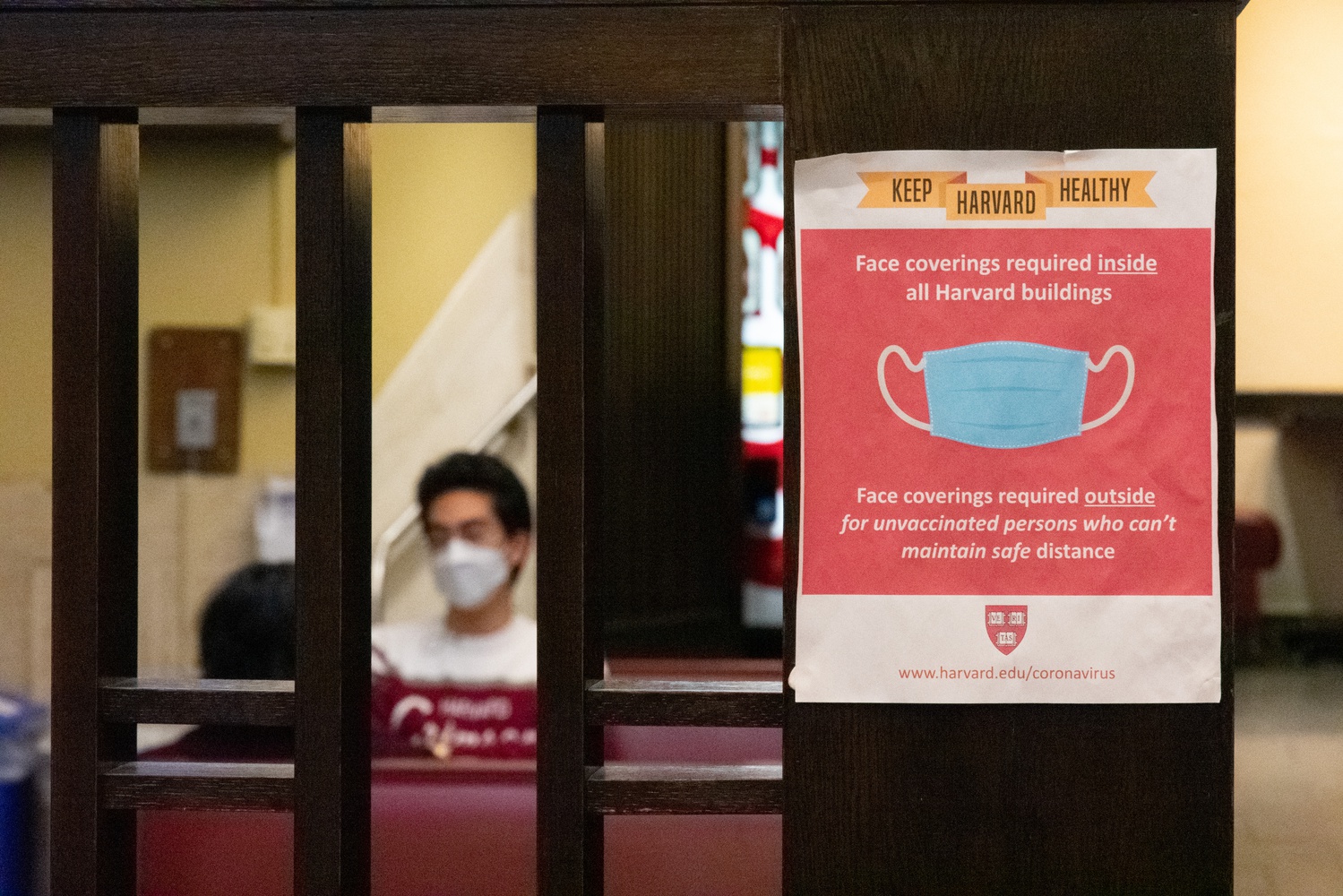
News
Harvard Grad Union Agrees To Bargain Without Ground Rules

News
Harvard Chabad Petitions to Change City Zoning Laws

News
Kestenbaum Files Opposition to Harvard’s Request for Documents

News
Harvard Agrees to a 1-Year $6 Million PILOT Agreement With the City of Cambridge

News
HUA Election Will Feature No Referenda or Survey Questions
The Season of Sickness is Here
The season of sickness is upon us.
College students are constantly in contact with others. From attending packed lectures and sitting alongside one another in the dining hall to sharing a glass at a party, we are constantly exchanging germs.
The result of this lifestyle — as The Crimson reported earlier this year — is that our campus has faced high rates of respiratory illnesses, including the flu, Covid-19, and RSV. There is nothing the college can do to prevent all illnesses — but it is Harvard’s responsibility to ensure students can still learn without infecting their classmates.
Currently, Harvard lacks sufficient academic accommodations for sick students. For lectures that are not recorded, the choice is either to miss class and fall behind or attend in person and potentially infect classmates. In a population of grade-obsessed students — which Harvard certainly is — the academic incentive to attend class ensures that your lecture hall will always be filled with coughs and sniffles.
There are a couple of avenues Harvard can pursue. For starters, Harvard should institute mandatory live recording of lectures and offer them to students with valid claims of illness, allowing them to watch lectures in real time from their dorm. To discourage abuse of the policy, professors should limit the number of recorded lectures distributed to a particular student before an official doctor’s note is required.
Or, professors could adopt the model from Economics 1010A: “Intermediate Microeconomics.” The class does not require attendance, but it provides bonus points for those who attend more than 75 percent of lectures. This way, students have an incentive to attend lecture without reason to abuse the policy. For non-lecture based seminars, the solution should be the same — just with higher attendance requirements.
Alongside recording lectures live and adjusting attendance policies, professors should consider offering more virtual office hours. Doing so would allow sick students to stay up to date on their work and generally enhance accessibility for students who can’t always attend in person.
To make sure ill students are still engaged, professors could further implement virtual discussion posts or other forms of attendance validation. Such an approach has benefits outside of just monitoring sick students, too — checks ensure students broadly are digesting course material.
On a campus that lacks quality air conditioning in most dorms, students are inevitably at a higher risk of contracting respiratory illnesses. Because the risk of Covid-19 infection is higher in poorly ventilated areas, Harvard should consider putting air conditioning in dorms and common spaces. If Harvard plans to continue the policy of no ventilation in dorms, University administrators should prepare for the consequences.
Above all else, the burden of protecting our campus from illness falls on students, too — as the Editorial Board has noted, simple measures like covering your mouth, staying home, and taking Covid-19 tests are probably a good idea when you aren’t feeling well. We must call on the University — and other students — to take proactive measures protecting our student body.
Our University has an obligation to protect each and every Harvard affiliate’s mental, physical, and emotional health. Strict attendance policies that force sick students into crowded classrooms are more than just irresponsible — they are unethical.
Until solutions are implemented, the perpetual cycle will continue. One student gets sick, and — on account of strict attendance policies — is forced to attend class. Inevitably, another student becomes ill, and the cycle continues. It is past time Harvard takes action and mandates policies that prevent the willful spread of disease.
At the core of this issue lies the inarguable principle that universities should be healthy and safe learning environments, not machines for pushing out every ounce of effort from individuals. By taking this step, Harvard’s administration can signal that they are truly invested in the holistic wellbeing of its students.
Harvard has the resources and the responsibility to implement policies that properly balance academic rigor with health. A learning environment more hospitable to sick students must be the next step our University takes to ensure no student must choose between their health and education.
M. Austen Wyche ’27, a Crimson Editorial editor, is an Economics concentrator in Winthrop House.
Want to keep up with breaking news? Subscribe to our email newsletter.
From Our Advertisers

Over 300+ courses at prestigious colleges and universities in the US and UK are at your disposal.

Where you should have gotten your protein since 1998.

Serve as a proctor for Harvard Summer School (HSS) students, either in the Secondary School Program (SSP), General Program (GP), or Pre-College Program.

With an increasingly competitive Law School admissions process, it's important to understand what makes an applicant stand out.

Welcome to your one-stop gifting destination for men and women—it's like your neighborhood holiday shop, but way cooler.

HUSL seeks to create and empower a community of students who are seeking pathways into the Sports Business Industry.

